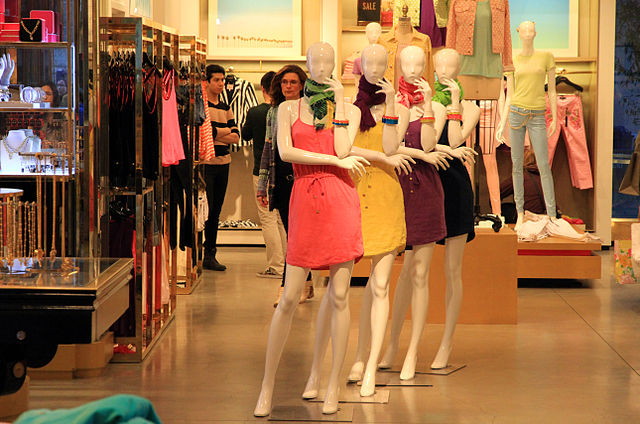 Zady’s cofounder and CEO Maxine Bédat has pulled together a helpful resource of the five ways for consumers to be more sustainable with their fashion choices:
Zady’s cofounder and CEO Maxine Bédat has pulled together a helpful resource of the five ways for consumers to be more sustainable with their fashion choices:
- Choose Alpaca over Cashmere. It takes five cashmere goats to make one sweater whereas you can create five sweaters from just one alpaca. Furthermore, cashmere goats eat grass by pulling it from the root, thus leading to desertification in China and Mongolia.
- Buy only what you love. Americans throw away 65-70 pounds of clothing each year. Invest in products you love and will own over the course of a lifetime.
- Buy fewer, and better. More than 150 billion garments are produced every year. That’s enough to provide more than 20 new articles of clothing to every person on the planet, every year.
- Avoid clothing produced in countries with coal-based power grids. The top two countries for fashion are China and Bangladesh. Both of these countries rely heavily on coal, the fossil fuel for their power supply. And our fashion factories are not any different. These factories are plugged into a coal-supplied grid pumping out all that clothing that we end up wearing, on average, only seven times.
- Choose organic cotton and natural fibers over synthetics. Polyester, a plastic material made of crude oil, is now the most commonly used fiber in our clothing, and the trend is only increasing. Nearly 70 million barrels of oil are needed to make the world’s polyester fiber each year – enough to fill the Empire State Building 10 times. Polyester takes more than 200 years to decompose.
 Maxine Bédat is the co-founder of Zady, a fashion brand and lifestyle destination creating a transparent and sustainable future for the $1.5 trillion apparel industry. Her background in international law and diplomacy, including serving as a legal clerk for the U.N., led her to found The Bootstrap Project, a non-profit organization that works with entrepreneurs in the developing world. For its work in sustainability, Zady was named one of the world’s “Most Innovative Companies” in retail by Fast Company, and its creativity was recognized by Mashable, which called the company “the #1 business rocking content marketing.” Bédat serves on the Council of NationSwell, has spoken at some of the world’s leading conferences, including the WWD Apparel/Retail CEO Summit, and has been regularly featured as an expert by Bloomberg, Forbes, Business of Fashion, CNN and the Huffington Post. Bédat is a graduate of Columbia Law School.
Maxine Bédat is the co-founder of Zady, a fashion brand and lifestyle destination creating a transparent and sustainable future for the $1.5 trillion apparel industry. Her background in international law and diplomacy, including serving as a legal clerk for the U.N., led her to found The Bootstrap Project, a non-profit organization that works with entrepreneurs in the developing world. For its work in sustainability, Zady was named one of the world’s “Most Innovative Companies” in retail by Fast Company, and its creativity was recognized by Mashable, which called the company “the #1 business rocking content marketing.” Bédat serves on the Council of NationSwell, has spoken at some of the world’s leading conferences, including the WWD Apparel/Retail CEO Summit, and has been regularly featured as an expert by Bloomberg, Forbes, Business of Fashion, CNN and the Huffington Post. Bédat is a graduate of Columbia Law School.





Add Comment